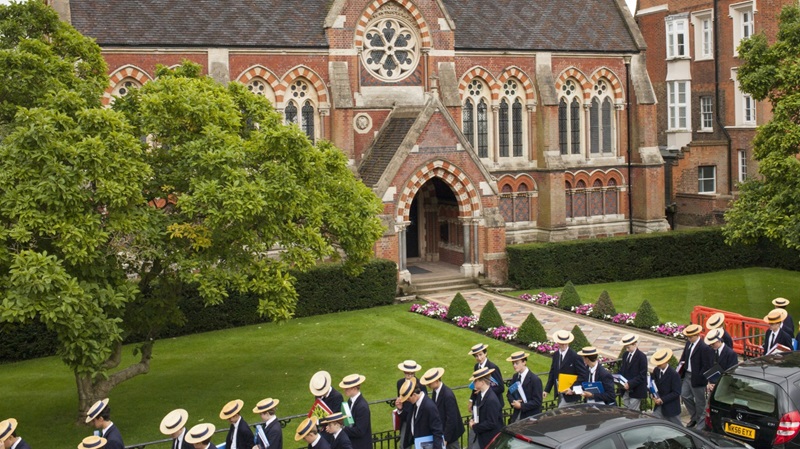Under a Labour government, the closure of private schools is seen as an inevitable consequence of their policies. With a focus on promoting equality and leveling the playing field for all students, the idea of private schools, which can often provide a better education for those who can afford it, goes against the principles of fairness and equal opportunity.
By removing the option of private education, the government aims to create a more equitable society where all students have access to the same resources and opportunities. While some may argue that this is a drastic measure that infringes on personal freedoms and choices, others see it as a necessary step towards creating a more just and inclusive education system.
Ultimately, the closure of private schools under a Labour government is a reflection of their commitment to creating a more equal society where every child has the chance to succeed, regardless of their background or financial status.

Labour’s Stance on Private Education Funding
Labour has long held the belief that private education funding should not take precedence over public education. The party’s stance on this issue is rooted in the principle of equality and fairness in education. Labour argues that diverting resources to private schools only serves to widen the gap between the haves and the have nots, perpetuating a system of privilege and inequality.
By prioritizing public education funding, Labour aims to ensure that all children have access to quality education regardless of their socio-economic background. The party believes that investing in public schools is the best way to create a level playing field for all students and provide them with the tools they need to succeed in life.
Labour also criticizes the practice of using public funds to subsidize private schools, arguing that this only serves to further entrench inequality in the education system. Instead, Labour advocates for a more equitable distribution of resources that prioritizes the needs of students in public schools. Ultimately, Labour’s stance on private education funding reflects its commitment to building a more just and inclusive society where every child has an equal opportunity to thrive.

Impact of Proposed Policies on Private Schools
The potential effects of proposed policies on private schools could be significant, with potential repercussions for the entire education system. These policies could potentially disrupt the autonomy and independence of private schools, impacting their ability to provide a unique and specialized educational experience for students.
Additionally, the financial viability of private schools could be threatened, as new regulations and requirements could lead to increased costs and administrative burdens. This could result in a decrease in the number of private schools available to families seeking alternative educational options for their children. Furthermore, the proposed policies could also impact the overall quality of education provided by private schools, as restrictions and mandates could limit the flexibility and innovation that these institutions are known for.
Ultimately, the impact of these proposed policies on private schools could have far-reaching consequences for students, families, and the education system as a whole. It is important for policymakers to carefully consider the potential implications of these policies and work collaboratively with private schools to ensure that any changes are implemented in a way that supports and enhances the diversity and choice in education.
Reactions from Private School Administrators
Private school administrators have been responding with varying degrees of concern to recent developments in education policy. Some administrators have expressed reservations about the potential impact of these changes on their schools, questioning the feasibility of implementing new regulations and the resources required to do so.
Others have voiced support for the government’s efforts to improve the quality of education, but have also raised questions about the practical implications for private institutions. There is a sense of uncertainty among administrators as they navigate the shifting landscape of education policy, with some expressing a desire for more clarity and guidance from authorities.
Despite these concerns, many administrators are committed to ensuring the continued success of their schools and are actively seeking ways to adapt to the changing regulatory environment. Overall, reactions from private school administrators reflect a complex mix of perspectives and challenges as they grapple with the implications of new policies on their institutions.

Potential Effects on Students and Families
The potential effects on students and families of certain actions can be far-reaching and complex. When individuals engage in behaviors that are not in line with societal norms, it can have a significant impact on their loved ones. For students, these effects may manifest in disruptions to their education, emotional well-being, and relationships with peers.
Family members may experience feelings of shame, fear, or uncertainty about the future. Financial strain and legal consequences can also add to the stress and burden on families. In some cases, conflicts may arise within the family as they navigate the challenges brought on by the actions of their loved one. Additionally, there may be a sense of isolation or stigma attached to the situation, leading to further strain on relationships.
Ultimately, the potential effects on students and families can be profound and lasting, requiring support, understanding, and resources to help navigate through these difficult times. It is important for individuals to consider the impact of their actions on those around them and seek help and guidance when needed to mitigate the potential negative effects on themselves and their families.
Future Outlook for Private Education Under Labour
The future outlook for private education under a Labour government is uncertain. With the party’s focus on increasing funding for public schools and reducing inequality in education, private schools may face challenges in maintaining their current status and funding levels.
Labour’s policies may lead to increased scrutiny and regulation of private schools, potentially impacting their ability to operate as they have in the past. Additionally, Labour’s emphasis on a more equitable education system may lead to a shift in resources away from private schools towards public schools, potentially affecting the quality of education and services provided by private institutions. Despite these potential challenges, private schools may also have opportunities to adapt and evolve in response to Labour’s policies.
By demonstrating their value and contribution to the education system, private schools may be able to secure their place in the future landscape of education in the UK. Ultimately, the future outlook for private education under a Labour government will depend on the specific policies and approaches implemented, as well as the response of private schools to the changing educational landscape.

